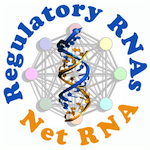In all eukaryotic cells, accurate chromosome segregation during mitosis is essential to maintain genome stability. At the heart of this process, kinetochores serve as the critical link between chromosomes and the mitotic spindle. But what happens when one of their components accumulates in excess?
In a study published in The Plant Cell, an international team including Pascal Genschik et Esther Lechner (IBMP) sheds light on the key role of the APC/C–CDC20 complex in the targeted degradation of KNL2, a kinetochore protein required for centromere identity in Arabidopsis thaliana.
KNL2 is necessary for the incorporation of the centromere-specific histone variant CENH3. The authors demonstrate that KNL2 is degraded in a ubiquitin-dependent manner by the 26S proteasome during mitosis. This degradation is mediated by interactions with two key substrate recognition components of the Anaphase-Promoting Complex/Cyclosome (APC/C): APC10 and CDC20.1.
By combining genetic, biochemical and proteomic approaches, the researchers show that expression of a degradation-resistant KNL2 variant in plants leads to severe developmental defects, reduced fertility, mitotic abnormalities, and centromere dysfunction.
This study uncovers a new quality control mechanism ensuring centromere integrity through the proteolytic clearance of a key kinetochore factor. It also highlights the power of collaborative research, bringing together plant and animal cell division experts to explore the molecular underpinnings of chromosome segregation.















